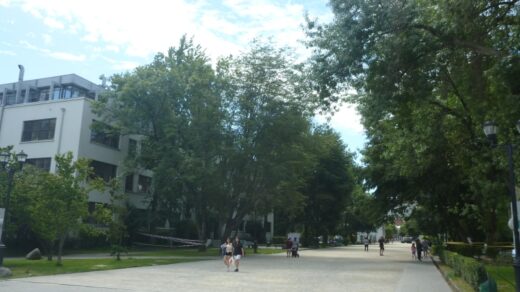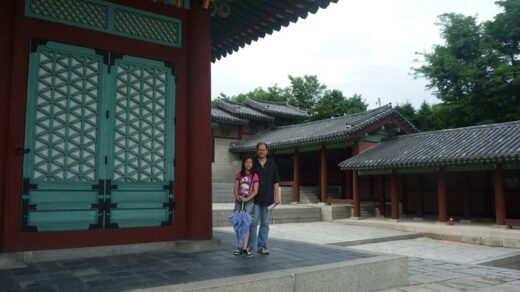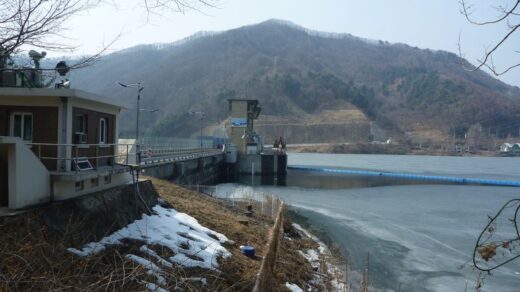*** Visit the related tip on Korea Business Central.
I received the following two questions last week, and as these aren’t the first inquiries I’ve gotten on the subject, I figure’d I’d post some thoughts on the topic here.
The Questions
#1 – “One of our investment professionals will be traveling to South Korea for a meeting and would like to make a few general opening remarks in Korean; thus, he is looking for someone to assist with crafting the remarks and learning to say them properly. Can you… assist?”
#2 – “[An executive of our company] is going to be giving a presentation in Korea next month at a conference…. He is a keynote for the general session with [a lot of] people. I’d like to open up his presentation with a cultural greeting and ‘thank you’ to the organization that is hosting him for this event.
Can you help me understand the cultural awareness around such a greeting? Is it appropriate at the beginning or should it go at the end? Can you help with a quick thank you greeting in Korean that I could include in the presentation?”
My Answer
These questions are based on the following assumptions:
- Speaking in Korean to a Korean audience will contribute to the experience.
- A greeting to Koreans in English may require input from a cultural expert in order to say the right things.
But it’s really not necessary to over-think this thing. For starters, here’s how I answered question #1:
“You don’t generally have to worry much about giving a culturally correct speech in Korea if the same speech would be culturally correct back home. Once you’ve written what you want to say, I’d be glad to review and make sure that you won’t offend anyone with it, but as long as you stay away from political commentary, you’re probably OK.
“As for giving the speech in Korean, unless your associate has had some training in the Korean language, I wouldn’t recommend it. Just parroting back a bunch of sounds that he’s practiced a few times isn’t going to sound much like proper Korean and the audience is unlikely to understand it.
“If you feel it’s important that your associate’s comments be shared in Korean, then prepare a version in Korean and give it to someone (perhaps an interpreter) beforehand to have him/her read it aloud in Korean after your associate shares his message in English. If your audience speaks English well enough to understand without an interpreter, then the need for your associate to speak in Korean is doubly unnecessary.”
A very basic greeting like “Anyeong haseyo (Hello)” at the beginning or “Gamsahamnida (Thank you)” at the end is appropriate. The Korean audience will appreciate the effort and this will certainly generate a few smiles in the audience.
However, trying to put together full sentences and paragraphs just based on memorized sounds is not going to result in a speech that anyone will understand. If, as in the case of Question #2, the purpose of the greeting is to express thanks, it’s important that the audience understand what’s being said and for that, an English greeting which is then repeated through a Korean interpreter is the best option. I was in the room once when a Westerner tried to express a long idea in Korean (without learning Korean first) and the audience didn’t understand what he said and this resulted in quite a bit of social discomfort.
As for the second premise, there’s certainly no harm in running the remarks by a consultant after they’re written in order to be absolutely certain nothing inappropriate gets in, but the same rules apply in Korea as elsewhere: avoid crude humor and stay away from political opinions. Korea is not a black box of hidden cultural codes and there is not a uniquely Korean way to give a speech that is distinct from any other way.
You might, however, review a couple recent business tips I wrote recently, including:
- How Can I Avoid Causing Offense in My Business Communications with Koreans? [EXPIRED LINK REMOVED: https://stevenbammel.com/category/archives/kbcforum/topics/korea-business-tip-how-can-i-avoid-causing-offense-in-my-communic]
- What Are Some Key Points for Using Names and Job Titles Correctly in Korean Business?
The KBC Professional Certification Program also contains a wealth of information about communicating and interacting effectively with Koreans in business.
And as mentioned above, I would be glad to review the content of your speech and provide feedback and suggestions on improving it for a Korean audience.



